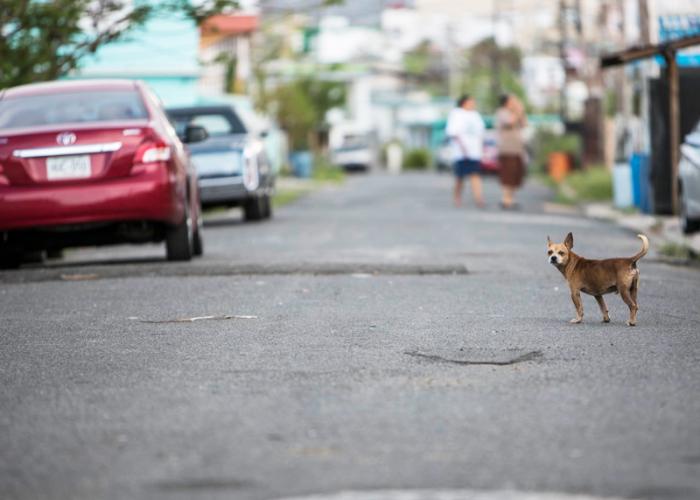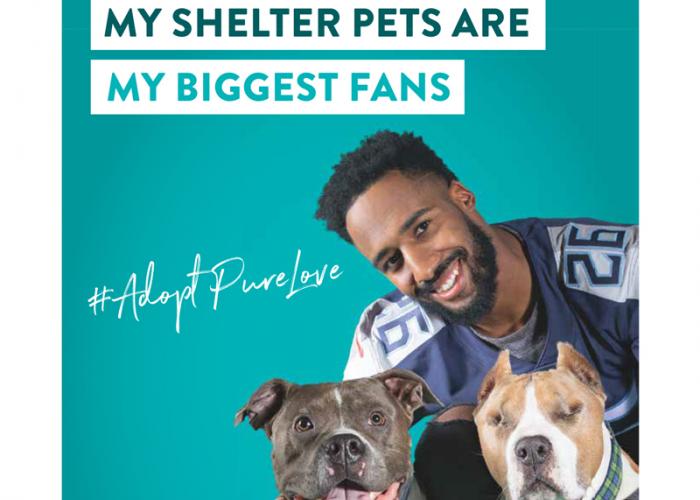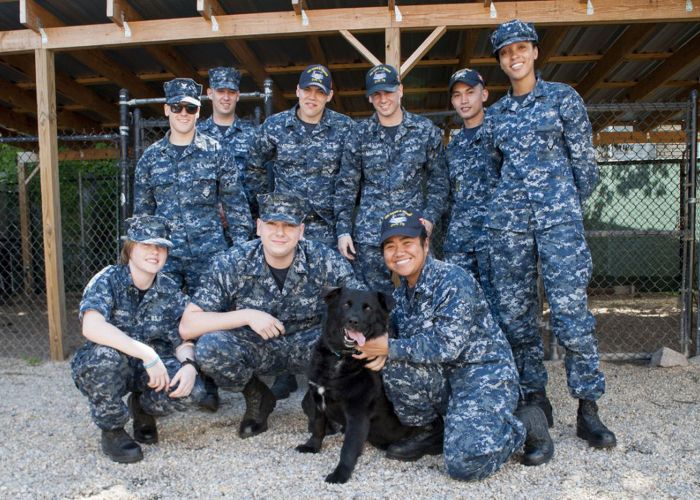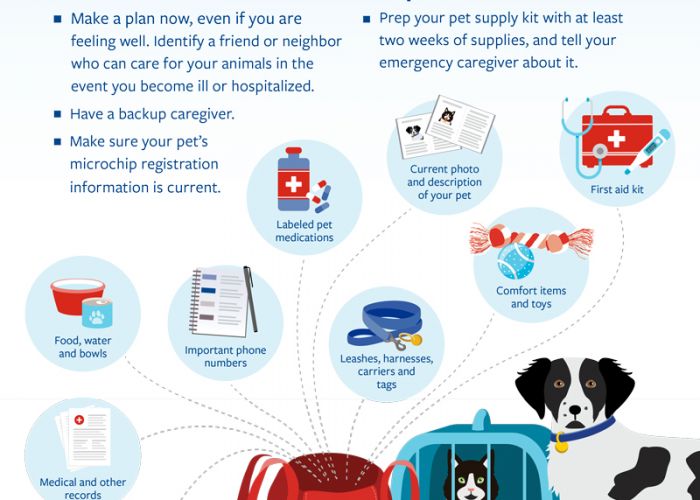High-tech pets
Startups could make for happier pets and pet owners

When I see dogs outside pharmacies or grocery stores, tied to lampposts or sitting in cars with windows cracked, I feel conflicted. Dogs want to be with their pack at all times, and I love that after a long day at work, people want to bring them along on car trips and errands. People talk about mommy guilt, but dog mommy guilt is oh-so-real, and I get that.
But I know that dogs tied outside are vulnerable to weather, theft or simply getting loose. And I wonder if many dogs might be happier—and safer from rising temperatures—left at home instead of sitting in cars in parking lots across the U.S.
Yet I feel even more conflicted when otherwise loving pet owners talk about how their pets hang out at home—often crated without bathroom breaks—for hours while they work, commute, run post-work errands or even hit happy hour.
Americans who work full-time work longer hours, on average, than workers in any other developed country. The length of our average commute gets longer each year. And we have the fewest number of paid vacation days, on average, in the developed world. That’s depressing for us and negatively affects our quality of life—but it’s also depressing for our pets and negatively affects their quality of life.
In the animal welfare community, we’d like to see animals go to homes where they’ll receive the best possible care, and in the past, that’s meant draconian adoption restrictions on busy professionals, young singles or city dwellers without yards. Today, we recognize that almost anyone can be a great adopter and pet owner—but that doesn’t mean they won’t need a little help. So how can we make pet care easier while ensuring the health and happiness of the pets in our communities?
In the future, pet care tech startups may be part of the answer. In 2018, funding of pet-related startups has already reached $519.3 million, compared to $67.2 million in all of 2012. Pet care is big business, and if widespread financial forecasts are to be believed, it’s only getting bigger.
(Editor’s note: Animal Sheltering magazine does not accept or receive financial compensation of any kind for mentioning products in our magazine articles. I selected each product based on online reviews, my personal opinion of its potential and/or unique attributes that make it stand out from the pack!)
Dog Parker/DogSpot
(Similar to: Nothing I’ve found!)
What is it? “A shareable, high-tech, vet-grade dog house” placed outside of businesses that don’t welcome pets. Members sign up for the free DogSpot app, which provides a map of DogSpots that you can reserve and unlock. Once your dog is inside the temperature-controlled, UVC-sanitized doghouse, it locks automatically. You can monitor your dog through the app’s Puppy Cam while you run errands. If your phone dies, you can use your member card to unlock the Dogspot. DogSpot help is available 24/7.
Cost: $6 for 15 minutes, or 30 cents a minute, with a maximum time limit of 90 minutes
What’s cool about the idea: Although it’s currently a bit pricey and only available in some cities, I think the Dog Parker/DogSpot is an indication of something exciting: The acknowledgment that dog-friendly communities are important to the well-being of people and pets, even if businesses aren’t or can’t be on board, and a growing awareness of the dangers of leaving dogs tied up or in cars. Unfortunately, not everyone loves the idea: NYC’s Transportation Department recently ordered DogSpot to remove its kennels from sidewalks, although a Brooklyn city councilmember has introduced a bill that would allow the kennels.
What the company says: “We envision a network of DogSpots in every walkable city.”
Fresh Patch
(Similar to: Doggie Lawn, Porch Potty)
What is it? An absorbent, odor-controlling pee pad made of living grass in a waterproof cardboard tray or an optional wooden or plastic tray (purchased separately). Primarily marketed to dog owners, but “Cats love grass too!” says Fresh Patch.
Cost: Ranges from $24 for a mini Fresh Patch to $40 for an extra-large one. An optional subscription service delivers new patches every one to four weeks.
What’s cool about the idea: Because this is living grass, I imagine dogs—including recently adopted, adult dogs unfamiliar with pee pads—might take to it more easily. It seems like a not-gross way to provide some relief for puppies or elderly dogs who can’t hold it for long periods, or for dogs who stay home while owners work long hours. And for picky dogs like mine, who refuse to go outside in the rain and force me to shovel a patch of grass in the snow—or for city dogs surrounded by concrete—it could be a great way to ensure they’re not holding it for too long.
What the company says: “Dogs instinctively want to go on real grass, so training is easy.”
Pawscout
(Similar to: Whistle)
What is it? A waterproof smart tag that attaches to your dog or cat’s collar and provides her location within 300 feet, tracks her walks and stores contact information and medical records. The accompanying app includes an outdoor virtual pet leash that alerts you if your pet leaves a designated outdoor space, as well as a feature that alerts anyone with the Pawscout app that your pet is lost. Any person with the Pawscout app who comes within 300 feet of your lost dog or cat will be notified and encouraged to contact you.
Cost: $13.85 to $19.99
What’s cool about the idea: Where do I begin?! If this works as advertised (some online reviews say the jury's still out), how about fewer stray pets and more returns to owners? Unlike microchips (which I’m obviously still a huge proponent of), anyone with the Pawscout app can read a Pawscout tag and learn a lost pet’s contact information and medical records. If your dog or cat wanders off, you’ll be alerted of her movement and general location, but if that’s not enough, the app invites your local community to take ownership of finding and returning lost dogs and cats. Plus, it’s wildly affordable.
What the company says: “Keep your pet safe with an active community and advanced technology.”
Fitbark
(Similar to: Link AKC Smart Dog Collar)
What is it? A wireless, waterproof, bone-shaped activity monitor that attaches to your dog’s collar and tracks his activity, sleep quality and overall health (including “mobility, anxiety and skin conditions”) and sends data to the accompanying app.
Cost: $69.95 for the Fitbark 2, plus optional accessories starting at $5.95
What’s cool about the idea: OK, this one might be overkill. But for potential adopters with human activity monitors (such as a FitBit or Apple Watch)—especially those looking for running and hiking companions—I can see it being a fun way to “twin” with a dog. For people who travel a lot or work long hours, it could provide peace of mind that the dog sitter or dog walker at home is doing a top-notch job. And it can apparently alert owners when it’s time to go to the vet, tracking pain levels and anxiety.
What the company says: “Dog health and human health go hand in paw.”
CleverPet
(Similar to: Nothing I can find!)
What is it? “The world’s first game console for dogs” offers kibble rewards for increasingly difficult agility and memory games. You can track and control food intake, track game progress, change games and schedule playtime from the accompanying app.
Cost: $249
What’s cool about the idea: Although my dogs would likely stare blankly at this “game console,” this could be a game-changer for super smart, high-energy dogs. (Read: Those dogs who keep coming back to the shelter because they’re bouncing off the walls and their owners don’t have the time to wear them out.)
What the company says: “You can leave the house with peace of mind knowing that your pup has an outlet for all that energy.”
PetBot
(Similar to: PetChatz)
What is it? A treat-dispensing, motion-sensing camera that lets you interact with your pet remotely and sends you photo and video “selfies” of your pet through the accompanying app. It can play pre-recorded audio clips of your voice, and “bark recognition” technology alerts you to potentially nefarious goings-on at home.
Cost: $199
What’s cool about the idea: Combined with a Fresh Patch or pee pad, this seems like a solid choice for those who can’t afford a daily dog walker but who work long hours. For animals who might engage in bad behavior—one of mine, for example, likes to climb on the coffee table—your pre-recorded voice and a treat could serve as a positive training tool (I’ll admit I’m dubious about the potential efficacy of this). When it comes to the pet selfies, I’d file this one under technology that enhances the human-animal bond—which can only be good for animals and animal welfare organizations.
What the company says: “We get it. You feel guilty leaving them.”
Wag!
(Similar to: Rover)
What is it? A website and app that gives you access to guaranteed available, screened, insured dog walkers on-demand (think pizza delivery, but dog walkers), shows you a GPS map of the walk and sends you a post-walk write-up and photo. The company provides a free lockbox for your house so your key is easily available to walkers.
Cost: Around $20 for a 30-minute walk
What’s cool about the idea: Although dog walking services abound, usually, dog walkers must be scheduled at least a day or two in advance. For people who can’t afford a daily dog walker, but who work unpredictable hours, enjoy an after-work drink or live in an area with scream-inducing traffic, I imagine Wag! could serve as a huge stress reliever.
What the company says: “Wag! allows you to have the freedom you want without neglecting your dog’s needs.”
Of course, while some of these high-tech solutions are reasonably affordable, some are still financially out of reach for many pet owners. But owning a radio was once a status symbol, and portable phones were once a pipe dream—history proves that in-demand technology will eventually become more financially accessible to more people!
What emerging technology do you think could make a positive difference in the lives of people and pets? Did we miss any promising new tech? Let us know in the comments below.






